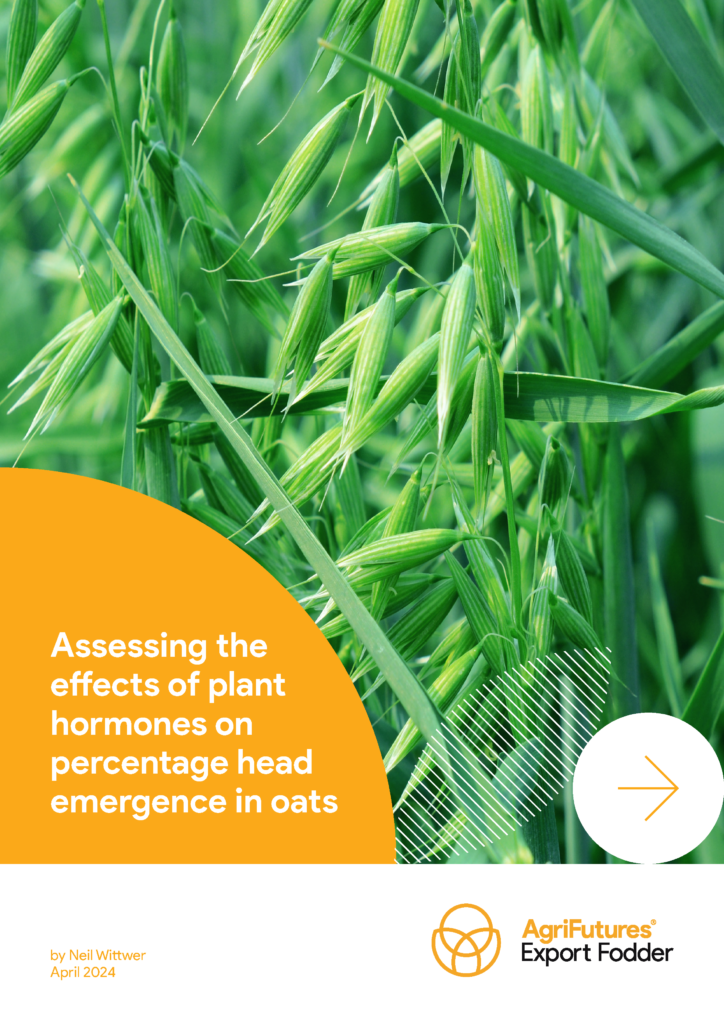In the pursuit of agricultural advancement, the Australian export fodder industry continuously seeks innovative methods to enhance crop yield and quality. This ongoing quest was the impetus for two field trials conducted in 2022 at Hilltown and Sunnybrae in South Australia, which investigated the impact of post-emergence plant hormone applications on the oat varieties Wallaby and Mulgara.
The trials evaluated the efficacy of four plant hormones – Kelpak, Progibb, CropXtra and Moddus 250 DP – applied at varying concentrations and developmental stages. The results revealed timing and concentration of hormone application notably affected biomass and plant height, with the most pronounced benefits observed when hormones were applied at the later BBCH 39 stage. Specifically, Progibb applied at 20 g/ha markedly increased plant height in the oat cv. Mulgara, highlighting the potential of targeted hormone management.
The findings are promising, indicating improved head emergence, which could translate into economic and operational advantages for hay producers, particularly those in marginal areas. They underscore the importance of precise application of plant growth regulators and suggest agricultural practices could be shifted to accommodate the nuanced responses of crops to hormonal treatments.
The research not only contributes to the body of agronomic science but also offers practical, actionable insights, paving the way for more informed and effective crop management. However, while applying plant hormones could lead to more robust crops, higher yields and better-quality hay, further research is required, particularly under challenging environmental conditions.





